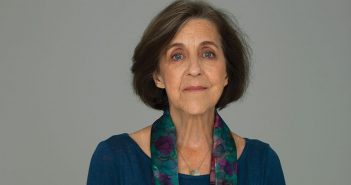On July 29, I had the honor of attending Dr. Damon Tweedy’s virtual visit with SC AHEC. Two days earlier, The New York Times published his opinion article about medical training and race: an article in which Tweedy argues that “Medicine, like other institutions in society, is now being called to task by its own for the role it has played in perpetuating the longstanding inequities that have led us to this moment.” As a black physician, Tweedy understands how these inequities are visible in medicine and also perpetuated by a medical establishment in which, as of 2016,
half of the medical students and residents surveyed agreed with one or more false statements about biological differences based on race, such as the idea that Black people had thicker skin and less sensitive nerve endings than their white counterparts.
Tweedy’s talk, divided into a lecture and discussion, began with a focus on the idea of race as “biological difference” and “behavioral pathology”; he mentioned, for instance, that many believe that COVID-19 disparities are due, in part, to the fact that Black people “can’t practice health hygiene” or masking. While certain disorders, he continued, tend to happen more in the Black community, these beliefs are products of systemic racism within the healthcare field, an issue examined by recent books like Medical Apartheid, Black and Blue, and Just Medicine.
Much of this movement, according to Tweedy, has been advanced by the students who enter medicine. These students have been demanding curricular changes, like the “Anti-Racism” curriculum at Duke University, where Tweedy works and teaches. Tweedy picked up on a topic we had discussed at our last book club meeting; anti-racism cannot be relegated to one lecture or one (typically minority) faculty member. It needs to be “part of the whole curriculum.”
While these changes are heartening, other statistics tell us we have far to go. From 1978-2014, the percentage of black men in medical school stayed the same. The percentage of black women nearly doubled, but black men “have become less common in the medical space.” Much of this is due to the cultural narrative of “what it means to be a black man”; the intersection of our notions of race and masculinity. Yet Black patients are more likely to utilize services when they have a Black physician, so this cultural narrative needs to change.
How do we change this? In our discussion, we covered the usual questions asked on an intake form: What is your age, race, and gender? In what way/s does asking about race already impose a variety of stereotypes on a patient? Perhaps we could include occupation or, as many suggested, get to know patients’ stories first. This brought us to the idea of narrative medicine (which will be covered in ENGL 290 this fall semester) as a way to understand a patient as more complex than “black” or “white.” He’s not arguing for colorblindness, but are we doing it in the best way when we reduce it to that?
What would, Tweedy asked, prevent structural racism in healthcare? Most of the book club participants answered this poll question with “universal health coverage.” According to one doctor, who conducted a study, states that took ACA/Medicaid money fared better in ters of patient health than states (like our own) that did not. Others argued about “implicit bias” training, arguing that physicians need to learn to “speak the same language” as their patients. Often, Black patients’ first engagement was so terrible that they decided they would “rely on God.” We need, Tweedy argued, to come up with an engagement model that looks at implicit biases. Often, medical students’ very training perpetuates and reinforces stereotypes: stereotypes often strengthened by the prominence of telemedicine during the COVID-19 pandemic. While physicians can see patients who might otherwise not get to the lab, these same people cannot get services or pick up medication. Access, too, illustrates the structural racism that undergirds our society and is reflected and reinforced by healthcare institutions.
Tweedy hopes to work on these structural issues “in a more concrete way” in his second book, coming out soon.











 cultural backgrounds, and studying the humanities facilitates these necessary skills.
cultural backgrounds, and studying the humanities facilitates these necessary skills.